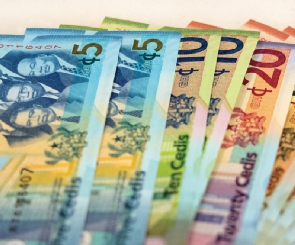The Bank of Ghana, in its 2022 Annual Report and Financial Statements said it used a whopping GH¢325 million to print notes in 2022.
In the previous year - 2022 - it used GH¢174 million to print notes.
Read the full story originally published on August 9, 2023 by www.ghanaweb.com.
The Bank of Ghana used GH¢325 million to print notes in 2022.
According to the Bank of Ghana’s Annual Report and Financial Statements for 2022, the Bank used GH¢174 million to print notes in 2021.
The Bank of Ghana incurred significant losses in 2022 largely as a result of the DDEP.
According to the report, the central bank’s holdings of government debt were restructured whereas non-marketable holdings of Government of Ghana instruments including long-term stocks, a Covid-19 Bond, and overdrafts were subjected to a 50 percent haircut.
Bank of Ghana’s other claims (holdings of marketable instruments) were exchanged under similar terms as other financial institutions under the DDEP.
This led to an impairment of GH¢48.40 billion in 2022. At the same time, the Central Bank incurred revaluation losses on its foreign assets and liabilities due to exchange rate depreciation.
The impairments and revaluation losses led to a negative equity position of GH¢55.12 billion for 2022.
The report also stated that despite a healthy trade surplus, the balance of payments recorded a deficit of US$3.64 billion on account of significant net outflows in the capital and financial account.
This led to a drawdown of US$3.46 billion in Gross International Reserves from US$9.70 billion at end-December 2021 to US$6.24 billion at end-December 2022, providing 2.7 months of import cover.
The significant drawdown in reserves triggered immense currency pressures and the reduction in the Common Equity Tier 1 capital ratio to 5.5 percent, from 6.5 percent, and an increase in the maximum Tier 2 capital ratio to 3.0 percent, from 2.0 percent of total risk-weighted assets.
See the full report below:
Watch the latest edition of BizTech:
Business News of Tuesday, 9 July 2024
Source: www.ghanaweb.com

















